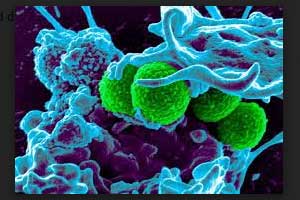- Home
- Editorial
- News
- Practice Guidelines
- Anesthesiology Guidelines
- Cancer Guidelines
- Cardiac Sciences Guidelines
- Critical Care Guidelines
- Dentistry Guidelines
- Dermatology Guidelines
- Diabetes and Endo Guidelines
- Diagnostics Guidelines
- ENT Guidelines
- Featured Practice Guidelines
- Gastroenterology Guidelines
- Geriatrics Guidelines
- Medicine Guidelines
- Nephrology Guidelines
- Neurosciences Guidelines
- Obs and Gynae Guidelines
- Ophthalmology Guidelines
- Orthopaedics Guidelines
- Paediatrics Guidelines
- Psychiatry Guidelines
- Pulmonology Guidelines
- Radiology Guidelines
- Surgery Guidelines
- Urology Guidelines
Exposure to cadmium cause for Salmonella resistance to antibiotics

According to the latest study Exposure to cadmium may be a cause for Salmonella resistance to antibiotics. It is making typhoid-causing bacteria, Salmonella, stronger and difficult-to-treat with conventional antibiotics. The results of the study, published in Scientific Reports
Salmonella is found in sewage and is exposed to heavy metals discharged from household and industrial waste. In order to survive, the bacteria have undergone various changes at the cell level.
Exposure to cadmium identified by researchers as a reason for salmonella becoming resistant to antibiotics and have deciphered how cadmium affects the bacteria. The study indicates that antibiotics that could treat a severe infection are becoming less effective and those which could only treat mild infections are becoming ineffective.
Conventional antibiotics were designed to act on certain components of the bacteria. With the bacteria changing in various ways, these antibiotics are becoming ineffective and slowly useless. Some antibiotics are unable to enter the bacteria because of a thicker protective layer, while others are unable to bind to the target protein within the bacteria as the protein itself has changed or has been taken up by cadmium readily because it ‘looks like’ calcium and zinc (which are needed by bacterial cells for various functions) and cannot be dislodged easily or the bacterial cells have become stronger due to increase of particles that protect them from dying.
Typhoid spreads through contaminated food and water. If not treated properly at the right stage the disease can even prove fatal. “With the knowledge of exactly how cadmium changes Salmonella, it would be easy to find alternative methods to counteract the action or even open up potential to come up with new alternatives taking into account the modified Salmonella attributes,” said Dr. Praveen Rishi from the Department of Microbiology, Panjab University, who led the study. The research team included Ujjwal Jit Kaur and Simran Preet.

Disclaimer: This site is primarily intended for healthcare professionals. Any content/information on this website does not replace the advice of medical and/or health professionals and should not be construed as medical/diagnostic advice/endorsement or prescription. Use of this site is subject to our terms of use, privacy policy, advertisement policy. © 2020 Minerva Medical Treatment Pvt Ltd